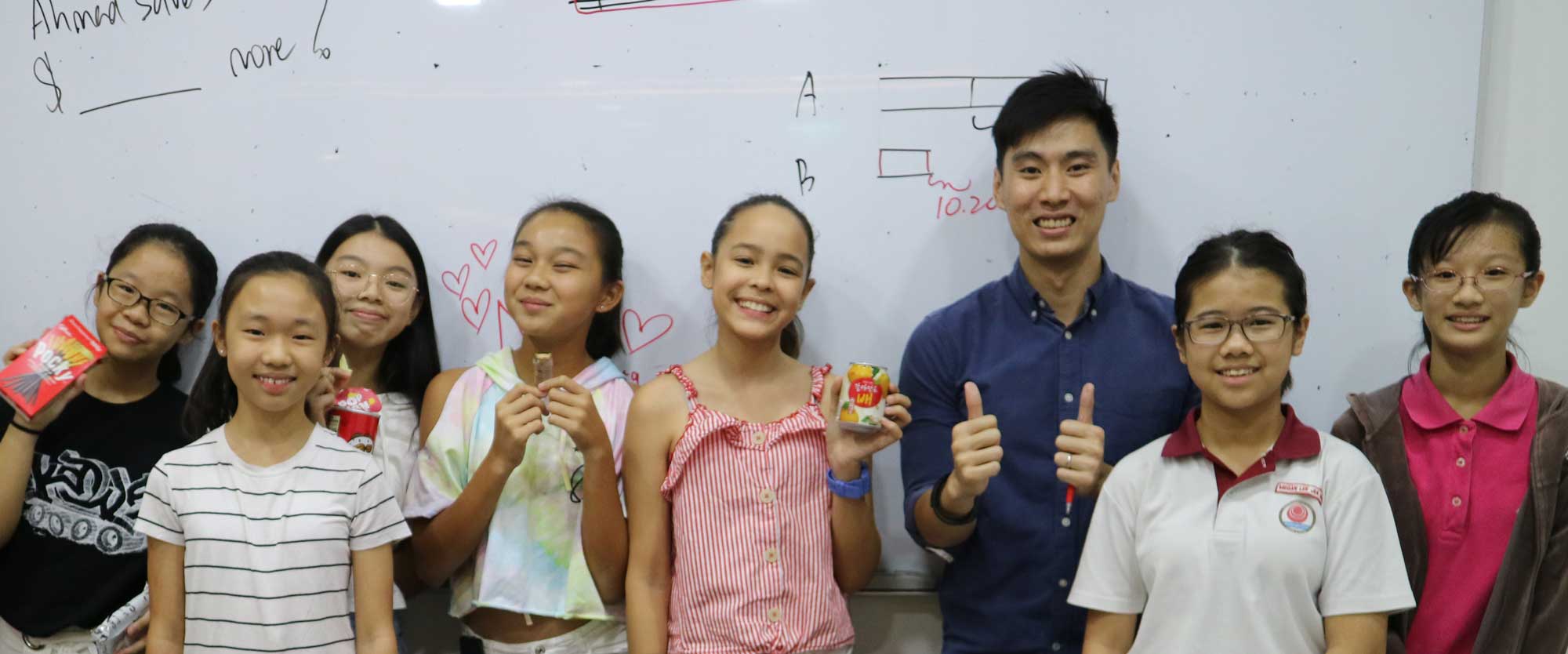
We Are Here to Support Your Child in Their DSA Journey
When Algene first encouraged me to leave my finance job at UBS to start an education company, it wasn’t an easy decision. But what gave me conviction was the vision we shared: to build something that goes beyond academics. We wanted to create a place that not only helps students excel in their studies but also equips them with the confidence, skills, and strategies to thrive in life.
My own journey has shown me how important these qualities are. As part of the pioneer batch of the Raffles Integrated Programme, I saw how different pathways like DSA opened doors for my peers. I was fortunate to receive scholarships myself and later sat on scholarship boards, learning first-hand what selectors look for. In my professional career, I represented UBS at campus recruitment and assessed candidates for global programmes. Sitting on both sides of the table taught me an important truth: grades alone are never enough; character, clarity, and confidence often make the difference.
That’s why at Think Teach Academy, together with Macro Academy and Summit Education in the Think Teach Group, we aim to guide students through every stage from academics to interviews so they are ready for opportunities when they come.
Offering DSA consultation services is a natural extension of this mission. We want to give your child the guidance and preparation I wish I had when I was younger, not to pressure them, but to help them bring out their best selves with confidence and authenticity.
Thank you for trusting us to walk alongside your child in this journey. It’s a privilege we don’t take lightly, and we’re proud to play a small part in their growth.
Yours in Education,
Shou Yee
Co-Founder, Think Teach Academy
Collective Expertise That
Strengthens Our Work

Martin
Macro Academy
Martin is a proud representative of University of Oxford and was offered the PSC Scholarship, a testament to his academic excellence and leadership potential. His passion for education drives his commitment to guiding students toward success.

Issac
Summit Education
Isaac holds a law degree from Cambridge University and a medical degree from Duke-NUS, bringing a unique multidisciplinary perspective. With a strong passion for mentorship and academic excellence, he specialises in DSA preparation and competitive admissions.

Hugo
Summit Education
Hugo holds a degree from UCLA and specialises in competitive US and UK university admissions. Passionate about holistic student development and personal branding, he helps students build interesting narrative and craft compelling applications that showcase their strengths.
Together, our combined strengths reflect the breadth of experience behind the Group. From law and finance to science and global admissions, our diverse expertise gives parents confidence that our process is backed by leaders who understand what it takes to thrive in both academics and life.

Ready to Explore Your Child’s DSA Pathway?
Every child’s journey is unique. If you’re wondering whether DSA is the right step for your child and how to give them the best chance of success we invite you to book a 1‑to‑1 Initial Consultation with our team.
In this personalised session, we’ll understand your child’s strengths, share honest insights about the DSA process, and guide you on how to approach it with clarity and confidence.
Here’s what you can expect:
🎯 1. Holistic Profile Understanding
In this first stage, we get to know your child beyond grades. We explore their academic strengths, natural interests, CCA experiences, personality traits, and early curiosities. This allows us to understand who they are as a learner and what domains they may authentically excel in — whether academic, leadership, STEM, the arts, or sports.
🔍 2. Identifying the Right DSA Domain
Many students have varied interests, and choosing the right domain is often the biggest challenge. We help you determine which areas your child can realistically demonstrate strength in, what schools look for in each domain, and how your child can position themselves strategically. This ensures you invest time and effort in a pathway that truly fits them.
📁 3. Portfolio Evaluation & Roadmap
We review your child’s current experiences and identify how these can be translated into a strong portfolio. You’ll learn what meaningful evidence looks like, why self-initiated projects matter, and how to develop a portfolio that reflects initiative, curiosity, and growth. We also outline specific project ideas and next steps to strengthen your child’s profile.
🎤 4. Interview Readiness Assessment
We assess your child’s readiness for the interview stage — from domain-specific questions to general “fit” questions. You’ll learn what makes a compelling interview story, how your child can communicate confidently, and what interviewers look for. This helps you understand the gap between where your child is now and where they need to be.
🧭 5. Personalised Strategy & Next Steps
Every consultation ends with a tailored plan. We provide a realistic evaluation of your child’s DSA readiness, recommend suitable domains, highlight the areas that need strengthening, and share a clear timeline leading up to application season. You’ll leave with clarity on how to guide your child — and how to help them build toward long-term success.
Alternatively, feel free to reach out to us directly to learn more.